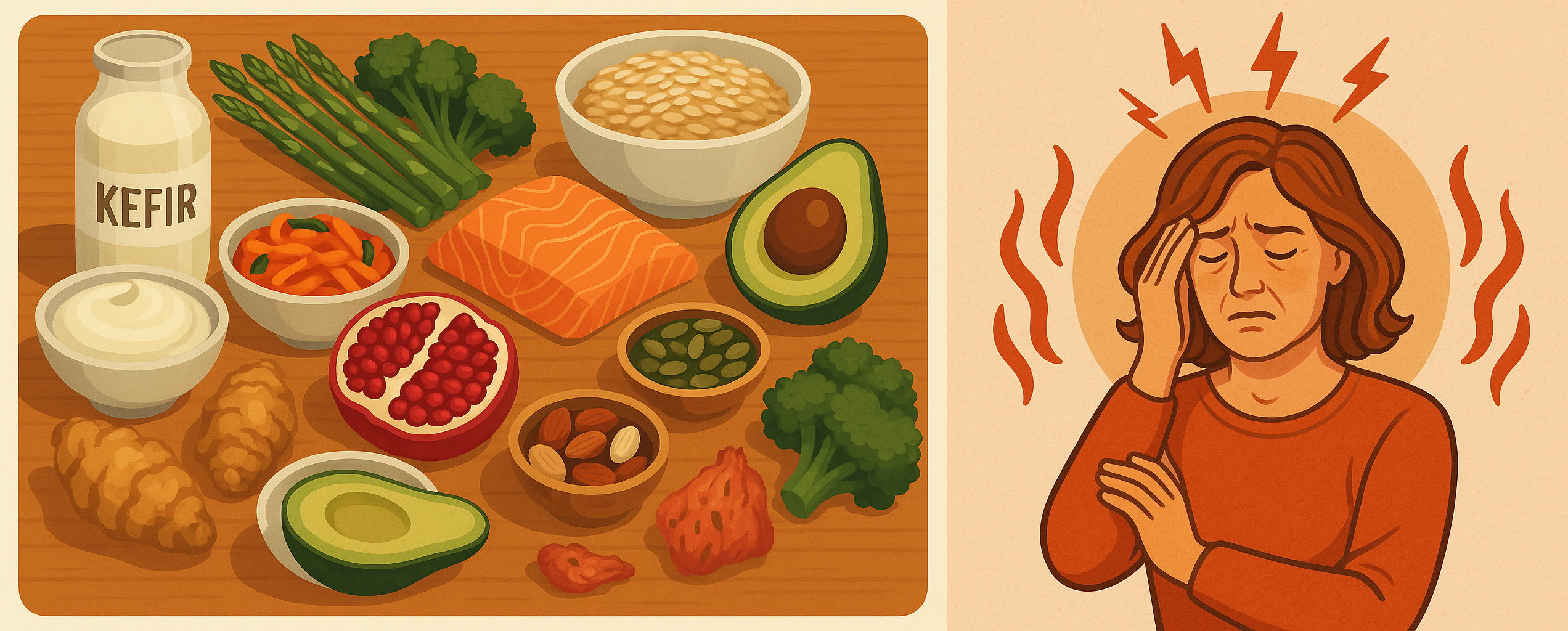Gut Health and Menopause: A Surprising Link

Gut Health and Menopause: A Surprising Link
The gut and hormones may seem like separate systems, but they are more connected than you might think. During menopause, when hormone levels begin to shift, some of the most uncomfortable symptoms – hot flushes, mood swings, sleep disturbances and weight changes – may be influenced by the balance of bacteria in your gut.
The estrobolome is a group of bacteria in the gut that helps break down and recycle oestrogen. When this system works well, oestrogen levels remain more stable. But when gut bacteria are out of balance, excess oestrogen may be flushed from the body too quickly, or reabsorbed in the wrong form, potentially making menopause symptoms worse.
Research is still emerging, but some bacteria have shown particular promise. Lactobacillus and Bifidobacterium species are linked to vaginal and gut health, improved mood, and reduced inflammation. Akkermansia muciniphila supports metabolic health and may help manage post-menopausal weight gain and insulin resistance. Faecalibacterium and Clostridium species are known for their anti-inflammatory properties, which may ease joint pain and low mood.
Several small studies suggest that targeted probiotics and prebiotic fibres may improve mood and cognitive symptoms, reduce vaginal dryness and the risk of urinary infections, support more stable hormone levels, and ease inflammation and oxidative stress. As always, results vary depending on the specific strains used, and more research is needed, but the early findings are promising.
A gut-friendly diet can go a long way. Aim for fibre-rich foods to feed beneficial bacteria, plant diversity to encourage a wider range of microbial species, fermented foods like kefir, kimchi or live yoghurt for natural probiotic support, and polyphenol-rich foods such as berries, flaxseed and soy, which can be converted by the gut into compounds that mimic oestrogen.
Looking after your gut may not be a complete solution, but it could become an important part of the puzzle. For many women, this approach offers a natural, supportive way to ease the transition through menopause.
Further Reading
Probiotic Supplementation Reduces Menopausal SymptomsReference: Probiotics and Prebiotics: Any Role in Menopause-Related Diseases?
Multispecies Probiotic Improves Menopausal Symptoms
Reference: Lactic Acid Bacteria: A Promising Tool for Menopausal Health
Probiotic Supplementation Alleviates Menopausal Symptoms and Improves Quality of Life
Reference: The Effect of Lactobacillus acidophilus YT1 (MENOLACTO) on Menopausal Symptoms